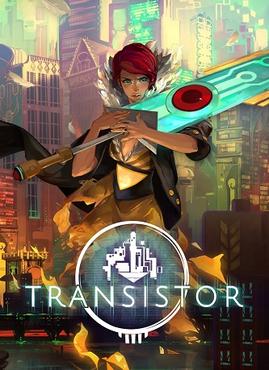Transistor. An action
RPG story-driven video game with isometric POV.
It is a wonderful game to play with an emotionally gripping story, and
strong gameplay elements which allows for a very enjoyable experience while going
through the story. I would recommend
this game for those who are looking for a short, but powerful, story experience
integrated with twitch reflexes and slow, deliberate gameplay.
 |
| Planning out the next couple of moves in Turn() |
 |
| Organizing and tying functions to active, passive, or upgrade slots. |
I found this style of combat very fun and rewarding, and it turns combat into a very cinematic experience. There are very many abilities, and each can be set in an active, passive, or upgrade slot. This allows for a ridiculous amount of loadout combinations, each of which allows for different focus of play. You can organize, change, and manipulate your functions only at access points, which are very common throughout the game. You can try many combinations and switch back easily if you find yourself preferring a specific loadout.
Another aspect of gameplay that I found particularly compelling is the use of the "death" system. Once your health is drained, your active function that fills up the most slots (or "memory") "overloads" and becomes unusable. In order to regain your lost functions, you must progress through the next several areas and reach new access points, which will restore the overloaded function. You will only die when you run out of active functions. I enjoy that the game forces you to adapt to a new setup when you lose an active slot, since it is often the most useful and used function that overloads.
 |
| Limiters increase the game difficulty |
Overall, the game difficulty is not too challenging, but for those who want a harder game, there are things called limiters. Limiters are various modifiers that either restrict your main abilities, or upgrade enemies to increase the difficulty of the game.
The storytelling of this game is excellent. This disembodied voice of the Transistor combined with the voiceless character of Red really served to accentuate what they lacked. As you walk around the city of Cloudbank, the Transistor makes a lot of remarks and observations about the area around you and the enemies you encounter. These short, simple remarks really humanize the characters, and you become empathetic and more personally tied to the story. In addition, there are OVC terminals scattered all around Cloudbank, each with various topics. They are completely optional, but clicking on them reveals more about the city, as well as providing Red with an outlet to “voice” her opinion. Some of the city’s lore is hidden away in the abilities you pick up, and needs to be “decrypted” in order to be read. I like that you can walk away from this game not touching much of the lore, but still get to experience a powerful story; or, you can immerse and enrich your experience by seeking out all of the information about the city and the characters. I particularly enjoy that you need to draw your own conclusions from the information you are given.
Transistor has a great soundtrack. There are a few soundtracks that cycle
as you explore and battle your way through the city, all of which are different
enough to where it seems like you are listening to a new song each time. All of the songs with vocals in them provide
lyrics which are deeply tied into the game.
Personally, there are quite a few songs that I really like.
The only main complaint I have about this game is the
concept of the “sandbox”. It is a
location that you can gain access to only from certain points in the game. It is an area with “test arenas” and the
music player. The test arenas were fun
the first couple of times, but then became long and tedious. The reward for clearing them was a song
piece, which you can then listen to on the music player. I found that locking away one of the game’s
strongest points behind tedious trials was simply annoying. Once I did unlock all of the music pieces,
being unable to access them whenever I wanted was also a little
frustrating. I wish you could have used the music player to compile a playlist of your favorite songs of Transistor,
and then set said playlist to play once you left the sandbox area, or at least
make the sandbox area an easily accessible area.
 |
| Adjusting the music player to the song I like. |
As always, thanks for reading! Leave a comment or discuss below and share
with your friends.


No comments:
Post a Comment